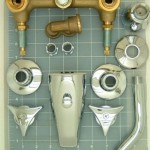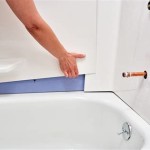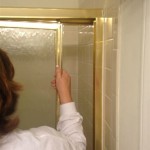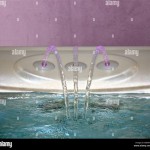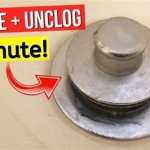Bathtub Water Not Hot Enough: Essential Troubleshooting
Indulging in a warm and soothing bath is a relaxing experience that can alleviate stress and rejuvenate the body. However, nothing can be more frustrating than when the water temperature falls short of your expectations, leaving you shivering and dissatisfied.
If you find yourself in this situation, fret not! Here are some essential troubleshooting tips to help you get the perfect hot bath:
1. Check the Water Heater Settings
The most common culprit behind lukewarm bathwater is an inadequately set water heater. Consult your water heater manual or refer to the manufacturer's website to find the ideal temperature range. Typically, it should be between 120-140°F (49-60°C) to ensure comfortable hot water for bathing.
2. Inspect the Water Heater Elements
If the water heater settings are correct, the problem could lie with the heating elements. Over time, these elements can accumulate sediment or scale, reducing their ability to heat water effectively. Contact a qualified plumber to inspect and clean or replace the heating elements as necessary.
3. Check the Water Flow Rate
Low water flow can result in cooler bathwater. Ensure that all faucets and showerheads in the house are turned off to minimize water usage elsewhere. This will increase the flow rate to the bathtub, allowing it to heat up more efficiently.
4. Insulate the Bath
Heat loss during the transfer of hot water from the heater to the bathtub can also contribute to lukewarm water. To minimize this, insulate the pipes leading to the bathtub or install a bath mat to cover the water surface and retain heat.
5. Consider a Tankless Water Heater
If you frequently encounter bathwater temperature issues, installing a tankless water heater may be a worthwhile investment. These heaters provide an endless supply of hot water on demand, eliminating the risk of running out of hot water mid-bath.
6. Consult a Professional
If none of these troubleshooting steps resolve the problem, it's recommended to seek the assistance of a licensed plumber. They have the expertise and tools to diagnose and repair any underlying issues with your water heating system, ensuring you enjoy a hot and relaxing bath every time.
Remember, these tips aim to provide general guidance, and the specific troubleshooting approach may vary depending on the type of water heater and plumbing system you have. If you are unsure or uncomfortable performing any of the steps, always consult a qualified professional to ensure safety and effectiveness.

Hot Water Not Enough Common Problems And How To Fix Them

Water Is Not Hot Enough Problems And Solutions By Wallingford S

No Hot Water In Bathtub But Sinks

No Hot Water In Bathtub But Sinks

No Hot Water In Bathtub But Sinks

Reasons Your Water Heater Is Not Making Enough Hot Insight From Trusted San Antonio Tx Plumbing Service Bluefrog Drain Of

Why Isn T There Enough Hot Water

Shower Not Getting Hot Adjust Your Mixing Valve

4 Common Reasons Your Bathroom Water Pressure Is Low Reichelt Plumbing

No Hot Water Follow These Troubleshooting Tips Bob Vila

